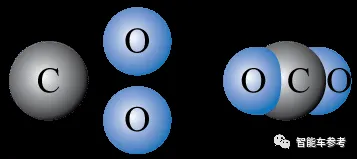Due to better safety and high theoretical capacity, solid-state electrolyte to replace the liquid electrolyte solid-state lithium metal battery R & D has attracted much attention, and thus the development of solid-state electrolyte is also particularly important. Reporter 17 from Yunnan University School of Materials and Energy was informed that the Institute Professor Guo Hong team recently made the latest progress in the development of new solid-state lithium metal-organic battery, the international journal "Carbon Energy" published the relevant research results.
Previous research and production have focused on inorganic electrolytes such as sulfides, halides, and oxides; however, these solid electrolytes have drawbacks such as rigidity and air sensitivity, which affect the interfacial stability and the cycling and multiplication performance of the battery.
In recent years, organic polymer electrolyte has the advantage of flexibility and easy film formation and gradually attracted attention, and covalent organic framework materials are a class of more promising applications of single-ion solid-state electrolyte carriers, but researchers need to study in-depth the number of active sites and the structure of the skeleton of the lithium-ion conductivity, mobility and the battery performance of the influence of the law.
Based on the current research status and the problems faced, and combined with the previous research foundation, Prof. Guo Hong's team designed and prepared three lithium carboxylate-modulated covalent organic framework monolithic lithium ion conductor materials. They studied the electrostatic potential distribution of the three materials in depth from the effects of different backbone structures and the number of active sites on the conductivity and mobility number of lithium ions, combined with theoretical calculations, and analyzed the differences in the migration paths and energy barriers of lithium ions by using density flood theory calculations.
Subsequently, the research team assembled a quasi-solid-state battery with lithium metal as the negative electrode, organic small molecule cyclohexane hexanone as the positive electrode, and the constructed single ionic conductor as the solid-state electrolyte. After performance testing and theoretical calculations show that the single ion conductor can effectively inhibit the growth of lithium dendrites, and the quasi-solid-state battery can solve the dissolution of organic small molecule cathode materials in the electrolyte, and this strategy provides an important theoretical basis and technical support for the construction of high-efficiency quasi-solid-state lithium metal-organic batteries.
(Article source: Internet)
[Zhongshun Xinneng Marketing Department July 22, 2022 Responsibility: Xiao Zheng]
Reprinted for the purpose of transmitting more information, and does not mean that we agree with its views and is responsible for its authenticity.




